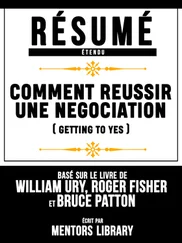Roger Crossland - Red Ice
Здесь есть возможность читать онлайн «Roger Crossland - Red Ice» весь текст электронной книги совершенно бесплатно (целиком полную версию без сокращений). В некоторых случаях можно слушать аудио, скачать через торрент в формате fb2 и присутствует краткое содержание. Город: New York, Год выпуска: 2016, ISBN: 2016, Издательство: Open Road Distribution, Жанр: Боевик, Триллер, на английском языке. Описание произведения, (предисловие) а так же отзывы посетителей доступны на портале библиотеки ЛибКат.
- Название:Red Ice
- Автор:
- Издательство:Open Road Distribution
- Жанр:
- Год:2016
- Город:New York
- ISBN:978-1-5040-3069-4
- Рейтинг книги:4 / 5. Голосов: 1
-
Избранное:Добавить в избранное
- Отзывы:
-
Ваша оценка:
- 80
- 1
- 2
- 3
- 4
- 5
Red Ice: краткое содержание, описание и аннотация
Предлагаем к чтению аннотацию, описание, краткое содержание или предисловие (зависит от того, что написал сам автор книги «Red Ice»). Если вы не нашли необходимую информацию о книге — напишите в комментариях, мы постараемся отыскать её.
Red Ice — читать онлайн бесплатно полную книгу (весь текст) целиком
Ниже представлен текст книги, разбитый по страницам. Система сохранения места последней прочитанной страницы, позволяет с удобством читать онлайн бесплатно книгу «Red Ice», без необходимости каждый раз заново искать на чём Вы остановились. Поставьте закладку, и сможете в любой момент перейти на страницу, на которой закончили чтение.
Интервал:
Закладка:
Puckins and Gurung crawled down to the barbed-wire fence. They advanced, sliding their skis under them, with their hands in the toe straps and their rifles around their necks. Puckins cut the lower five strands between two posts on the apex section’s perimeter. He left the top electrified strands alone. Puckins’s cut breached an opening about four feet wide and three and one half feet high. He then cut through the second perimeter fence. He bowed with a flourish, gestured Gurung through, and then handed him the wire cutters.
As with most penal institutions, this one had been designed with the primary aim of keeping certain people in, rather than keeping others out. The camp’s officers had mimicked the camp’s design in setting their priorities. As ordered, the three sentries sat inert in their towers wearing heavy sheepskin coats. With their rope ladders drawn up into their tower crow’s nest, they focused their attention on the prisoners’ barracks, occasionally standing to stretch their legs, clap their hands, or adjust the tiny wood stove, which seemed to add little to their comfort. Most of the time they sat so still it was difficult to tell if they weren’t dozing.
Gurung had to cut through two additional fences, but he was the first to reach his designated tower. I saw his kukri flash from its scabbard as he left his skis behind and began to feel his way up the tower struts. Puckins reached his tower seconds later. He ascended quickly, pulling himself up hand over hand, letting his legs hang slack. When he reached the sentry’s platform, he drew a length of wire, with toggles at either end, from his coat. A quick flick of the looped garrot and the sentry was clawing at his neck. In a minute the struggle was over. Puckins pushed the body aside and, unslinging the Dragunov, covered the third sentry on the far side of the camp carefully gauging windage and elevation.
Gurung was having a difficult time. He had barely had time to swing under his sentry’s platform when that sentry had stood up to load more wood into his stove. When the sentry sat down again, Gurung waited. Then in a rapid succession of movements he was at the railing, then slashing his kukri toward the back of the sentry’s neck. At this moment the sentry chose to stand up again. The razor-sharp kukri slashed through several layers of clothing into the sentry’s back. The sentry screamed and fumbled for his rifle. The scream echoed through the valley—then stopped abruptly with Gurung’s second stroke.
The third sentry on the far side of the camp stood up and took aim. A cracking report shattered the valley’s peace for a second time. In the far corner, the sentry dropped his rifle, pitched forward, and toppled to the snow beneath his tower like a broken gray doll.
Puckins raised the barrel of the Dragunov, satisfied with his shot.
CHAPTER 23
“Stand by.”
From their position on top of the ridge, Chamonix and Alvarez fired an armor-piercing round from the recoilless rifle into the mobile generator. The generator supplied power for the radio shack and most of the camp. The distant whine of the generator stopped with a resounding thump and a shower of sparks. Chunks of metal clattered against the side of the radio shack.
“Let’s hit it… now!”
The rest of us pulled our suede face masks into place, patted our body-armor vests, and placed our ski tips parallel. I could hear shouting from the guards’ barracks. The wind whistled under my fur ear flaps, knocking back my white hood as I made a few clumsy turns to keep my velocity under control until I shot through the gap in the fence. Moments later I was barreling through the breach. I could hear the hiss of six sets of skis behind me. I could hear snow being kicked aside as they, too, plunged through the two fences and across the camp yard. Someone fell behind me—in time with a rifle shot from the barracks—but was up before I dared to look back.
Several half-clothed guards—I thought I recognized the beer-barrel sergeant—were already out of their barracks’ side door. I fired a fan of tracers from a crouch, never bothering to reduce speed. Chamonix and Alvarez, with the recoilless, took cover near the radio shack and took aim at the door of the snowdrift blister that was the magazine. The magazine erupted in a terrifying geyser of iridescent flame. That signaled the end of the garrison’s hope for automatic weapons or additional ammo. I turned to watch the recoilless crew, only to see Alvarez stagger as blood gushed from his upper thighs below his body armor. Three more hits made him do a macabre soft-shoe before he collapsed, leaving a trail of bright red snow. His feet still moved, pushed, drove the body another yard, leaving a slushy, scarlet skid mark.
Shifting his position a few degrees, Chamonix waited for Alvarez to load the next round. He hadn’t seen him go down. The next target was the guards’ barracks.
The SKS fire from their barracks was withering. Wickersham, Matsuma, and I had to take shelter behind an ell of the cooler. Kruger, at another corner of the cooler, was covering the officers’ quarters and had eliminated the watch-standers in the radio shack. I felt a round rip through the side of my quilted jacket, deflect off my body armor, and scrape hotly up the inside of my left arm. Wickersham was laying down automatic-weapons fire with the Type 67. Matsuma had disappeared.
Then he reappeared amid a cat’s cradle of tracer streaks. He sprinted recklessly across the open area between the cooler and the guards’ barracks. Halfway across, he took a hit, which knocked him over as if he’d been hit with an invisible I-beam. He’d been hit in his armor vest. Then he crawled to the corner of the barracks and began cutting down anyone who tried to leave the barracks. Seconds after, Wickersham and I rushed across, smashing the Type 67 through an already-shattered window. Wickersham began raking the inside of the barracks. Out of the corner of my eye I saw Chamonix dragging the recoilless and its ammo across to the far door of their long barracks. The building was propped up on blocks. I crawled under the gauntlet of windows to help him. I knew we were also taking ragged fire from the officers’ quarters, and I could see gray uniforms working around back of the cooler toward the half-tracks.
I jammed a canister round into the recoilless. Canister was the descendant of grapeshot and had the same devastating effect. Chamonix fired through a window. The back blast created a great cloud of snow. I loaded a canister again. Chamonix fired. He was talking but I could no longer hear anything. The roar of the blasts had been too loud. I loaded again and he fired. He turned and said something but it sounded as if he were talking through a calliope. I began to load again but he tapped my arm and shook his head no.
I kicked open the door. The inside glowed brightly. A stove had fallen over and several bunks had caught fire. The place was a slaughterhouse. Grisly chunks of body and bone were smeared everywhere. I tripped over an ownerless boot. In one corner of the barracks I thought I saw something move and aimed to fire. A body tumbled to one side and a woman who had been beneath it rose calmly. She was naked and unmarked. Hard, dark circles had been etched beneath her eyes. I could tell she had been pretty a long time ago—a ballerina, perhaps. She kicked aside the body violently and reached for her prison clothes, which lay in a mound nearby. She looked Chamonix and me up and down with bitter defiance. Who were these grisly specters; masked, cloaked in deathly white, and splattered with blood? New jailers? Probably.
Chamonix found two other women weeping in a concrete-walled shower room. They’d all learned how to survive in this camp long before we arrived.
Читать дальшеИнтервал:
Закладка:
Похожие книги на «Red Ice»
Представляем Вашему вниманию похожие книги на «Red Ice» списком для выбора. Мы отобрали схожую по названию и смыслу литературу в надежде предоставить читателям больше вариантов отыскать новые, интересные, ещё непрочитанные произведения.
Обсуждение, отзывы о книге «Red Ice» и просто собственные мнения читателей. Оставьте ваши комментарии, напишите, что Вы думаете о произведении, его смысле или главных героях. Укажите что конкретно понравилось, а что нет, и почему Вы так считаете.












